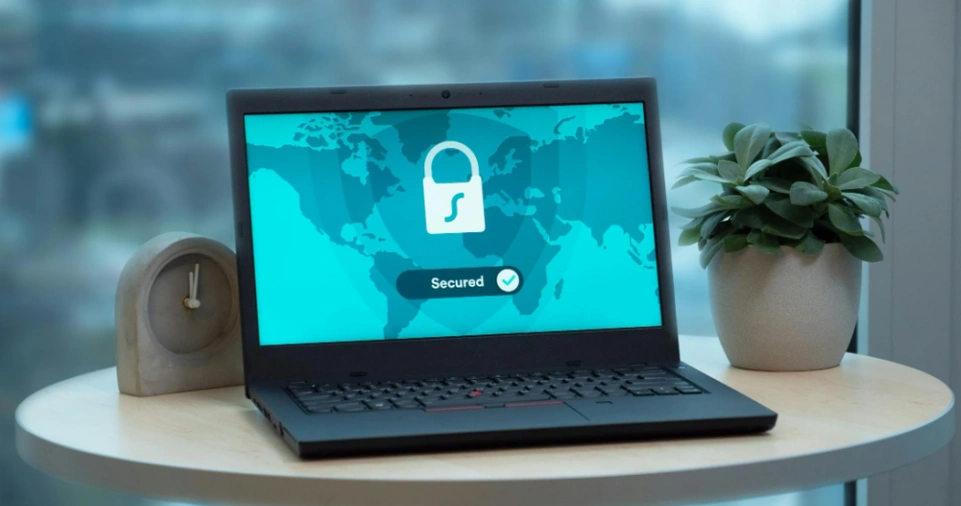Cryptocurrency transactions have revolutionized financial systems, offering anonymity, decentralization, and security.
However, as digital assets gain popularity, they also become targets for cybercriminals, hackers, and surveillance entities.
Using a Virtual Private Network (VPN) can significantly enhance security, privacy, and anonymity when conducting crypto transactions.
This guide will explain how to use a VPN effectively for secure crypto transactions, discuss its benefits, and cover additional relevant aspects of online security, including advanced security measures, best practices, and compliance considerations.
Why You Need a VPN for Crypto Transactions
Cryptocurrency transactions rely on blockchain technology, which provides a certain level of security and decentralization.
However, vulnerabilities still exist, especially regarding online privacy and exposure to malicious actors. Here are key reasons why using a VPN is essential:
- Enhanced Privacy: A VPN hides your IP address, making it difficult for hackers or surveillance agencies to track your online activities.
- Protection Against Cyber Threats: VPNs use encryption to secure your internet traffic, reducing the risk of man-in-the-middle attacks.
- Bypassing Geo-Restrictions: Some countries impose restrictions on crypto exchanges; a VPN can help bypass these limitations.
- Secure Public Wi-Fi Usage: Conducting crypto transactions on public networks can be risky, but a VPN adds a layer of encryption, mitigating threats.
- Preventing ISP Tracking: Internet Service Providers (ISPs) can monitor and throttle crypto transactions; a VPN prevents this by masking your traffic.
ALSO READ: How to Read Cryptocurrency Trading Charts Like a Pro?
How to Choose the Right VPN for Crypto Transactions?

Not all VPNs are suitable for crypto-related activities. Here are essential factors to consider when selecting a VPN:
| Feature | Importance | Description |
|---|---|---|
| No-Log Policy | High | Ensures that the VPN provider does not store your browsing history or transaction details. |
| Strong Encryption | High | Look for VPNs that use AES-256 encryption for maximum security. |
| Kill Switch | High | Automatically disconnects the internet if the VPN connection drops, preventing IP leaks. |
| Fast Speed | High | Low latency and high bandwidth are crucial for smooth crypto trading. |
| Server Locations | High | Choose a VPN with multiple server locations, including crypto-friendly countries. |
| Multi-Device Support | Medium | Allows secure transactions across multiple devices. |
| Obfuscation Technology | Medium | Helps disguise VPN usage in restrictive regions where VPNs are blocked. |
| Dedicated IP Address | Medium | Enhances security by providing a unique IP address for transactions. |
How to Set Up a VPN for Secure Crypto Transactions
- Choose a Reputable VPN Provider: Select a VPN service that prioritizes security and privacy, such as NordVPN, ExpressVPN, or ProtonVPN.
- Download and Install the VPN App: Once you have selected a VPN, download and install the application on your device (Windows, macOS, Android, iOS, or Linux).
- Connect to a Secure Server: Choose a server located in a crypto-friendly country and connect to it to ensure your IP is masked and your data is encrypted.
- Enable Security Features: Activate the Kill Switch, DNS Leak Protection, and Multi-Hop Routing (if available) for enhanced protection.
- Access Crypto Exchanges Securely: Once connected to the VPN, log in to your crypto exchange or wallet and proceed with transactions securely.
- Verify IP Address and DNS Leak Protection: Use online tools to confirm your VPN is working correctly and that your actual IP address is hidden.
ALSO READ: How to Plan Your Crypto Investment Strategy for 2025 and Beyond?
Advanced Security Measures

Using a VPN alone may not be sufficient to secure your crypto transactions. Consider these additional measures:
Use a Secure Crypto Wallet
- Hardware Wallets: Ledger, Trezor
- Software Wallets: Trust Wallet, Exodus
- Multi-Signature Wallets: Require multiple approvals for transactions
Enable Two-Factor Authentication (2FA)
Use Google Authenticator, Authy, or SMS-based 2FA to add an extra layer of security to your crypto accounts.
Avoid Public Wi-Fi
Public networks are vulnerable to cyber-attacks. If necessary, always use a VPN to encrypt traffic.
Keep Software and VPN Updated
Regularly update your operating system, VPN, and crypto wallets to patch security vulnerabilities.
Beware of Phishing Attacks
Never click on suspicious links or share your private keys and recovery phrases with anyone.
Implement Cold Storage for Crypto Assets
Cold storage solutions, such as hardware wallets, provide additional protection by keeping assets offline.
Compliance and Legal Considerations
- Jurisdictional Awareness: Ensure that using a VPN and engaging in crypto transactions comply with local regulations.
- KYC and AML Policies: Many exchanges require identity verification; use a VPN responsibly to maintain compliance.
- Record-Keeping for Taxation: Keep accurate records of transactions for tax purposes while ensuring security and privacy.
Common Mistakes to Avoid When Using a VPN for Crypto Transactions

| Mistake | Consequence |
|---|---|
| Using a Free VPN | May log and sell your data, making transactions insecure. |
| Ignoring the Kill Switch | Your real IP may leak if the VPN disconnects. |
| Selecting a Slow Server | Can cause delays and affect real-time crypto trading. |
| Logging into Exchange Without VPN | May expose your IP address and identity. |
| Not Checking for DNS Leaks | Could expose browsing data even when using a VPN. |
| Using an Overcrowded Server | Slows down transactions and affects connectivity. |
ALSO READ: How to Spot Fake NFTs and Avoid Scams?
Conclusion
A VPN is an essential tool for securing crypto transactions, providing anonymity, encryption, and protection against cyber threats.
However, it should be used in conjunction with other security measures, such as secure wallets, 2FA, and good cybersecurity practices.
By carefully selecting and properly configuring a VPN, users can significantly enhance the privacy and security of their cryptocurrency activities while maintaining regulatory compliance and mitigating potential risks.
Frequently Asked Questions (FAQs)
1. Can I Use a Free VPN for Crypto Transactions?
It is not recommended. Free VPNs often have weak encryption, slower speeds, and may log and sell user data.
2. Does a VPN Affect Crypto Trading Speeds?
Yes, but premium VPNs with high-speed servers minimize latency, ensuring smooth trading experiences.
3. Can a VPN Help Bypass Crypto Exchange Bans?
Yes, by masking your IP and connecting to servers in allowed regions, a VPN can bypass geo-restrictions.
4. Is It Legal to Use a VPN for Crypto Transactions?
In most countries, using a VPN is legal. However, always check local regulations regarding crypto transactions.
5. How Often Should I Change VPN Servers?
Regularly switching servers enhances anonymity and security, especially when making frequent transactions.







